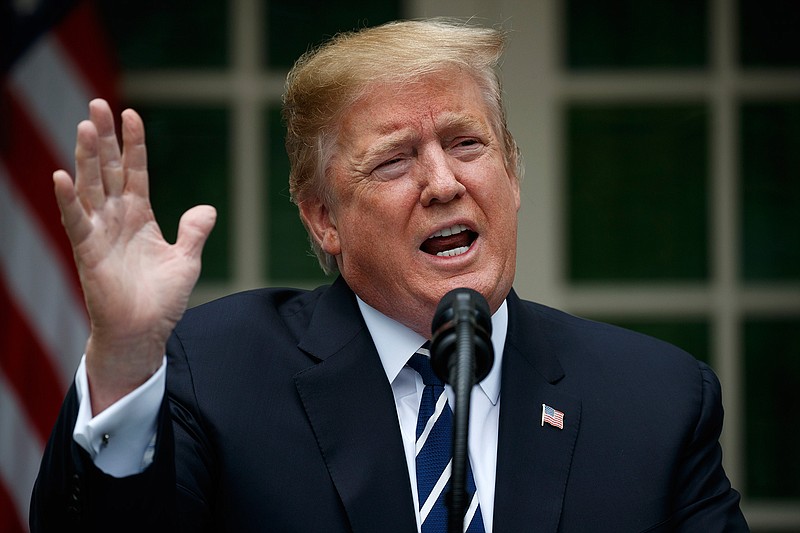NEW YORK-President Trump wants to make it easier for genetically engineered plants and animals to enter the food supply, and he signed an executive order Tuesday directing federal agencies to simplify the "regulatory maze" for producers.
The move comes as companies are turning to newer genetic engineering techniques that make it easier to tinker with the traits of plants and animals.
Greg Jaffe, biotechnology director at the Center for Science in the Public Interest, said the impact of the executive order will depend on the details of how it's carried out by federal agencies. Simply deregulating could make people lose confidence in genetically engineered foods, he said.
"There needs to be an assurance of safety for those products," said Jaffe, who was among those briefed by government officials on a call before the order was announced.
The order also noted the government's policies should urge trading partners to adopt similar regulatory approaches. Even if the U.S. loosens regulations on genetically engineered foods, Jaffe noted companies could be hampered by regulations overseas.
How genetically engineered plants and animals are currently regulated in the U.S. varies depending on the exact methods used to produce them, and federal agencies have already been working to clarify policies as new technologies have emerged. But already, some aspects of the administration's approach have worried consumer advocacy groups.
Last week, the U.S. Department of Agriculture proposed changing its regulations in a way that would mean much of the genetically modified corn and soy grown in the U.S. today would not necessarily have been subject to special oversight.
Crops produced with newer gene-editing technologies also wouldn't automatically be subject to special oversight under the proposed rule, unless they posed a risk as plant pests. Companies have said that gene-editing allows them to more precisely alter plants and animals, and that what they're doing could theoretically be achieved through conventional breeding.

